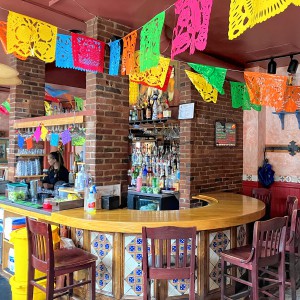Argentine horror sensation Agustina Bazterrica follows up her BookTok smash-hit novel Tender is the Flesh with a blistering and brutal dystopian vision of religious extremism at the end of the world. Read this article for free: Already have an account? To continue reading, please subscribe: * Argentine horror sensation Agustina Bazterrica follows up her BookTok smash-hit novel Tender is the Flesh with a blistering and brutal dystopian vision of religious extremism at the end of the world. Read unlimited articles for free today: Already have an account? Argentine horror sensation Agustina Bazterrica follows up her BookTok smash-hit novel Tender is the Flesh with a blistering and brutal dystopian vision of religious extremism at the end of the world.
In 2017, Bazterrica burst onto the English-language literary scene with Tender is the Flesh, a near-future dystopia where factory farming has resorted to using humans for meat in the absence of pork or cattle. The first of her novels to be translated into English, Tender is the Flesh blew up on social media, making Bazterrica a household name among horror fans. A short story collection, Nineteen Claws and a Black Bird, was published in English in 2020, but most fans have been ravenous for her next novel-length project.

Translated by Sarah Moses, is set in a future dystopia again, but much further along than . There are no recognizable elements of the society we know now, with references to the “water wars” and other catastrophic events which took place generations ago, leaving only a completely battered and barren landscape, devoid of cities or plant growth or animals. Lina Botero photo Agustina Bazterrica’s style will be familiar to fans of Cormac McCarthy — the prose is spare, imagistic and brutal.
The narrative unfolds as diary entries from an unnamed narrator who must hide the pages she writes from the other nuns in the Sacred Sisterhood, her mysterious and cruel religious order. The contamination of the outside world means that survivors have varying levels of mutation or contagion, creating a hierarchy among the followers in the convent. Living in an abandoned monastery, most of the women, including the narrator, fall into the category of unworthy; there are servants below them who have been contaminated by the toxic world.
Above the unworthy are the Chosen, the Enlightened and the Minor Saints, women chosen for exceptional purity who then undergo different mutilations to enhance their divinity. Those who can hear the voice of the divine have their eyes sewn shut; others have their eardrums punctured to render them deaf. Order is viciously maintained by the Superior Sister, who rules over the congregation with fear and violence.
And all serve Him, a master they never see directly, always hidden behind a confessional or curtain in a not-so-subtle, though much darker version of . Through the journal entries, the narrator cobbles together information about the world outside the congregation, which most believe has completely disintegrated but may be showing signs of recovery, and her own memories about her life before arriving at the monastery. She does not remember the world before the apocalypse, nor did her own mother, but there are hints about the furthering of social collapse.
In this apocalypse, uncertainty allows the cruelest to rule with fear and threats of punishment, of exile to the unforgiving outside world, of damnation. The convent is a kind of reverse or perverted Christianity; though they have taken up residence in a monastery, the traditional Christian iconography is forbidden, the stained-glass windows covered with black paint. Bazterrica’s style will be familiar to fans of Cormac McCarthy’s and especially ; her prose is spare, imagistic and brutal.
The few bits of humanity left remain in spite of the extreme cruelty that has flourished in this new world. But like in McCarthy’s unforgiving wasteland, a tiny sliver of hope remains. Very tiny.
The Unworthy While not as visceral as , this latest novel feels crueler, darker. Bazterrica’s talent for harsh yet somehow mesmerizing world building is on full display in . It’s certainly not for the faint of heart, but fans of dystopian horror are sure to relish every grim moment.
Keith Cadieux is a Winnipeg writer and editor. His latest story collection Donner Parties and Other Anti-Social Gatherings is out now from At Bay Press. He also co-edited the horror anthology What Draws Us Near, published by Little Ghosts Books.
The Unworthy: A Novel Agustina Bazterrica, translated by Sarah Moses Simon & Schuster Canada, 192 pages, $26 Advertisement Advertisement.
Entertainment

Worthy of your time

Argentine horror sensation Agustina Bazterrica follows up her BookTok smash-hit novel Tender is the Flesh with a blistering and brutal dystopian vision of religious extremism at the end of the [...]















